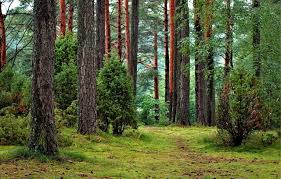In the realm where urban landscapes meet nature’s splendor, the importance of trees cannot be overstated. As guardians of ecological balance, aesthetic beauty, and community well-being, trees demand careful attention and management. This is where arboricultural consultants step onto the stage.
These tree care experts bridge the gap between nature and urban planning, offering vital guidance for the sustainable coexistence of trees and communities. In this comprehensive blog post, we will delve into the world of arboricultural consultants, exploring their roles, expertise, significance, and why their services are pivotal in preserving the health and vitality of our green spaces.
Defining Arboricultural Consultants:
Arboricultural consultants, often referred to as tree consultants or tree experts, are professionals specializing in the study, management, and care of trees. Their expertise lies at the intersection of botany, horticulture, forestry, and urban planning.
Arboricultural consultants provide a range of services aimed at maintaining, enhancing, and harmonizing the relationship between trees and their surroundings.
Roles and Responsibilities:
- Tree Health Assessment: Arboricultural consultants conduct thorough assessments of tree health, identifying signs of disease, decay, or structural issues. This assessment informs decisions on tree care and management.
- Risk Assessment: Consultants evaluate the safety of trees in urban settings, identifying potential hazards and recommending measures to mitigate risks to people and property.
- Tree Preservation: Arboricultural consultants work with developers, architects, and local authorities to develop strategies for preserving trees during construction or development projects.
- Tree Pruning and Maintenance: They provide guidance on proper pruning techniques, ensuring the health, safety, and aesthetics of trees while maintaining their structural integrity.
- Planting Recommendations: Arboricultural consultants advise on suitable tree species for specific locations, considering factors such as soil conditions, climate, and available space.
- Diagnosis and Treatment: They diagnose tree diseases, pests, and other issues and recommend appropriate treatments to restore tree health.
- Tree Inventory and Management Plans: Consultants create comprehensive inventories of trees within a specific area and develop management plans for their care, maintenance, and replacement.
- Expert Testimony: Arboricultural consultants may serve as expert witnesses in legal proceedings related to tree disputes, damage claims, or property assessments.
Expertise and Qualifications:
Arboricultural consultants typically possess a combination of formal education and practical experience. They often hold degrees in fields such as arboriculture, forestry, horticulture, or environmental science. Many consultants also seek certification through professional organizations like the International Society of Arboriculture (ISA) or the Arboricultural Association to demonstrate their expertise.
The Significance of Arboricultural Consultants:
- Preserving Urban Greenery: In urban environments, trees face numerous challenges. Arboricultural consultants ensure that trees thrive amidst urbanization, contributing to air quality, aesthetics, and overall well-being.
- Enhancing Safety: Through risk assessment and management, consultants play a crucial role in preventing accidents caused by falling branches or unstable trees.
- Sustainable Development: Arboricultural consultants guide the integration of trees into urban planning, allowing for sustainable development while preserving the natural environment.
- Expert Guidance: Their expertise helps property owners, municipalities, developers, and other stakeholders make informed decisions about tree care and management.
- Promoting Biodiversity: By recommending diverse tree species, consultants contribute to the promotion of biodiversity and resilience in urban ecosystems.
Conclusion:
Arboricultural consultants are the custodians of our urban forests, employing their expertise to strike a harmonious balance between nature and human habitation. Their roles encompass tree health assessment, risk evaluation, tree preservation, and more.
The significance of their work extends beyond aesthetics, contributing to the health, safety, and sustainability of our communities. As we navigate the challenges of urban growth, the guidance of arboricultural consultants ensures that our green spaces continue to flourish, enriching our lives and our environment.





Leave a Reply